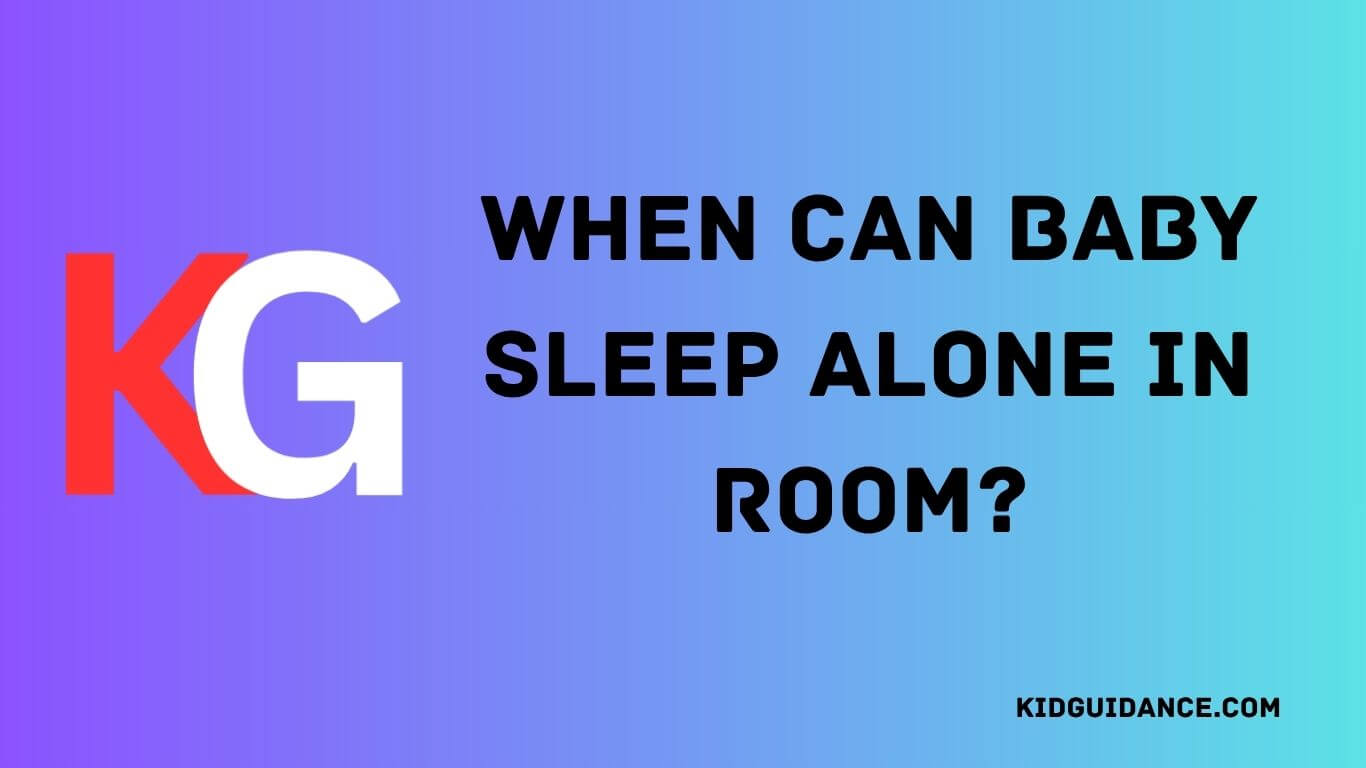The first time I wondered when can baby sleep alone in room, I stared at the crib across the hall like it was a mile away. As a tired but nervous parent, I was torn between wanting better sleep and keeping my baby close. After deep research and some real-life trial and error, I finally found what worked.
In this article, I’ll share expert advice, emotional truths, and the little details I wish I knew earlier. Let’s walk through it together — your peace of mind is just a few scrolls away.
Understanding Infant Sleep Needs
Why Infant Sleep is Unique
Newborns sleep differently than older children or adults. Their sleep cycles are short and packed with REM sleep, which means they wake often and make lots of little noises. That can keep both baby and parents from getting restful sleep.
The Role of Room Sharing
Sharing a room makes nighttime feedings easier and helps build bonds. According to the American Academy of Pediatrics (AAP), babies should sleep in the same room as parents (but not the same bed) for at least the first six months—ideally up to 12 months. That means when parents ask, “At what age should a baby sleep in their own room?”, the expert answer is: after 6 months, based on your baby’s development and your family’s comfort.
When Can Baby Sleep Alone in Room?
Age Guidelines and Flexibility
Most experts recommend that after 6 months, babies can start sleeping in their own room if they show signs of readiness. By 12 months, many families have made the switch. But every child is unique, and so are their needs.
Developmental Signs Your Baby May Be Ready
Some signs your baby might be ready include:
- Rolling over safely on their own
- Sleeping for longer stretches at night
- Needing fewer nighttime feedings
- Showing signs of self-soothing (like sucking a thumb)
So if you’re wondering, “When can you leave a baby to sleep alone?”—these are the signs to watch for.
Balancing Safety and Independence
Safe Sleep Practices
Whether baby sleeps in your room or their own, these tips always apply:
- Put baby on their back to sleep
- Use a firm, flat mattress with no pillows or loose bedding
- Keep the crib free of toys and bumpers
- Use a baby monitor for peace of mind
Understanding the 5-3-3 Rule for Babies
The 5-3-3 rule for babies isn’t a medical standard—it’s often used to describe feeding and sleep rhythms (like 5 hours of sleep, 3 hours of wake, 3 hours of feeding). But it’s not something parents must follow. Every baby has their own rhythm, and flexibility is key.
Creating a Safe Sleep Environment
Make the room cozy and calming:
- Keep it cool, dark, and quiet
- Use a sound machine for white noise
- Make sure familiar (safe) objects are nearby
- Keep sleep routines consistent
Emotional Side of Transitioning
Parental Anxiety is Normal
I remember being scared the first night my baby wasn’t right next to me. I kept the monitor close and didn’t sleep much. It’s okay to feel anxious—it means you care deeply. Deep breaths, mama. You’ve got this.
The Baby’s Emotional Security
Help your baby adjust with slow changes:
- Start with naps in the new room
- Use check-in methods if they cry
- Stay close the first few nights, maybe with a mattress on the floor
Wondering “At what age should a child sleep alone?” varies with culture and family, but many children begin around age one, gradually building confidence over time.
How to Make the Transition Smooth
Step-by-Step Tips
- Start with one nap a day in the baby’s room
- Keep bedtime routines the same
- Sit nearby until your baby falls asleep
- Slowly reduce your presence over time
Tools That Help
- Video baby monitors: great for peace of mind
- Night lights: soft glow can be comforting
- Wearable monitors: track baby’s breathing and heart rate
Each tool has pros and cons—choose what makes you feel confident without over-relying on technology.
Personal Experience and Insight
With my first child, I moved her to her room at 4 months because she was waking at every tiny noise I made. But with my second, I waited until 7 months. Both transitions were different—and both were right. Cultural norms also played a role. In many South Asian families like mine, co-sleeping is common. But as our lifestyle changed, so did our sleep arrangements.
Every family has its own path. What matters is what feels right for you and your baby.
Expert Insights and Sources
Backed by Science
One study from Penn State found that babies who slept in their own room around 4 months slept longer stretches. But this isn’t a green light for everyone—AAP still recommends room sharing until at least 6 months for SIDS prevention.
Quote Pediatric Experts
Dr. Jennifer Ashton says, “We need more data on how sleep practices impact safety and long-term development.” She also emphasizes balancing guidelines with parental instinct.
FAQs
When can baby sleep alone in room?
Most babies can sleep alone in their room after 6 months. It depends on how they sleep, self-soothe, and if they wake less often. Learn more in our guide.
At what age should a baby sleep in their own room?
Many doctors say babies can move to their own room after 6–12 months. Each baby is different, so watch for signs they’re ready to sleep alone.
When can you leave a baby to sleep alone?
You can leave your baby to sleep alone when they can roll, sleep for longer stretches, and don’t need many feeds. This is often after 6 months.
What is the 5-3-3 rule for babies?
The 5-3-3 rule is a baby sleep routine: 5 hours before bed, 3-hour nap window, and 3-hour bedtime stretch. It’s more of a guide than a fixed rule.
At what age should a child sleep alone?
Most kids can sleep alone by age 3–5. Some need more time for emotional growth and safety habits. Comfort and sleep training help with the shift.
Is it safe for a baby to sleep alone?
Yes, if your baby is past 6 months, the sleep space is safe, and they can self-soothe. Use a monitor and follow safe sleep rules to be sure.
How do I know my baby is ready to sleep alone?
If your baby rolls over, sleeps well, and feeds less at night, they may be ready. Watch how they respond to naps in their own space first.
Can I move my baby earlier than 6 months?
Some parents move their baby earlier if they sleep better alone. Just make sure the room is safe and you use a monitor. Talk to your doctor if unsure.
Should I use a monitor when baby sleeps alone?
Yes, baby monitors help you stay connected. Choose one with sound and video to watch over your baby and feel at ease during the night.
How can I make the switch easier for my baby?
Start with naps in the new room. Keep a bedtime routine, and use white noise. Be close at first and slowly give your baby more space.
Conclusion
Knowing when your baby can sleep alone in room is a journey, not a one-size-fits-all rule. Most experts say after 6 months is safe, but the real answer lies in your baby’s readiness and your gut feeling.
Trust yourself. You’ve already made it through sleepless nights, messy diapers, and teething. You know your baby best.
Ready to take the next step? Share your experience or ask questions below—your story might just help another parent sleep better tonight.




